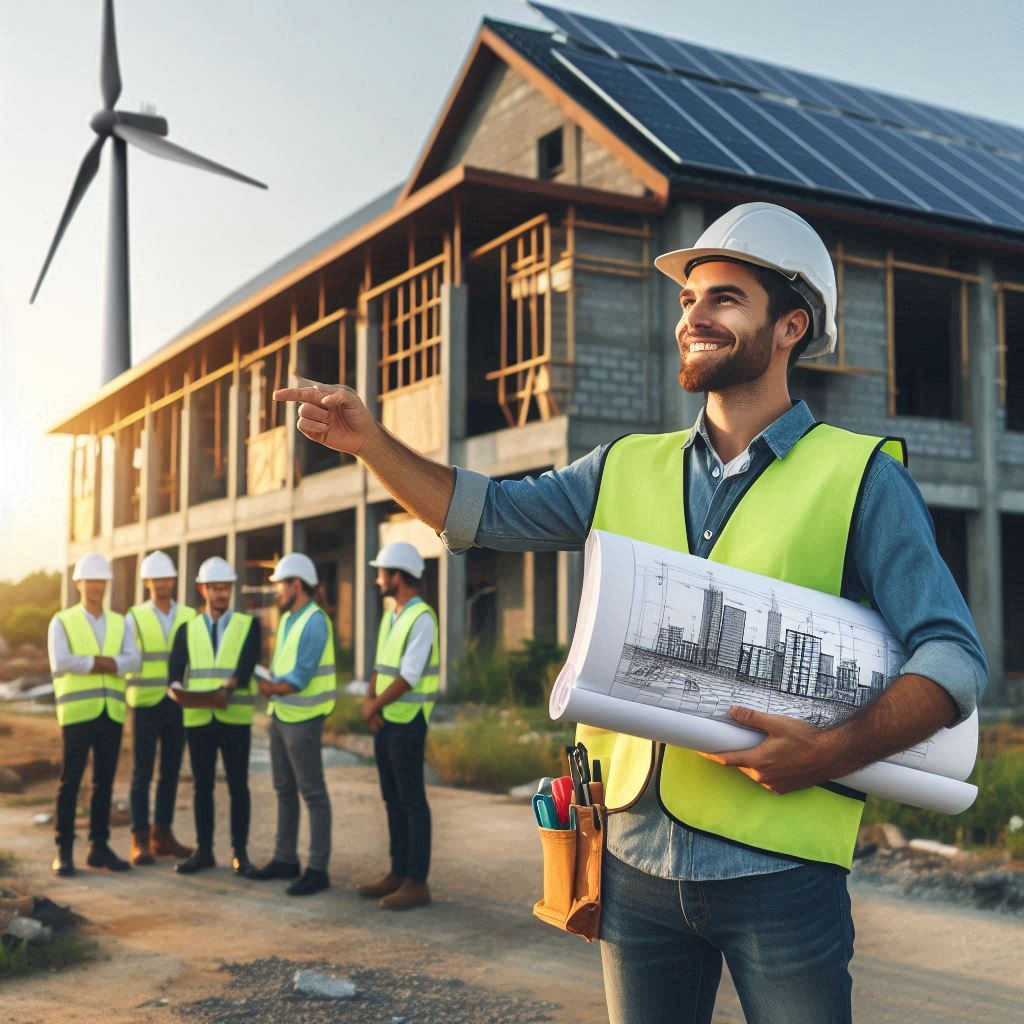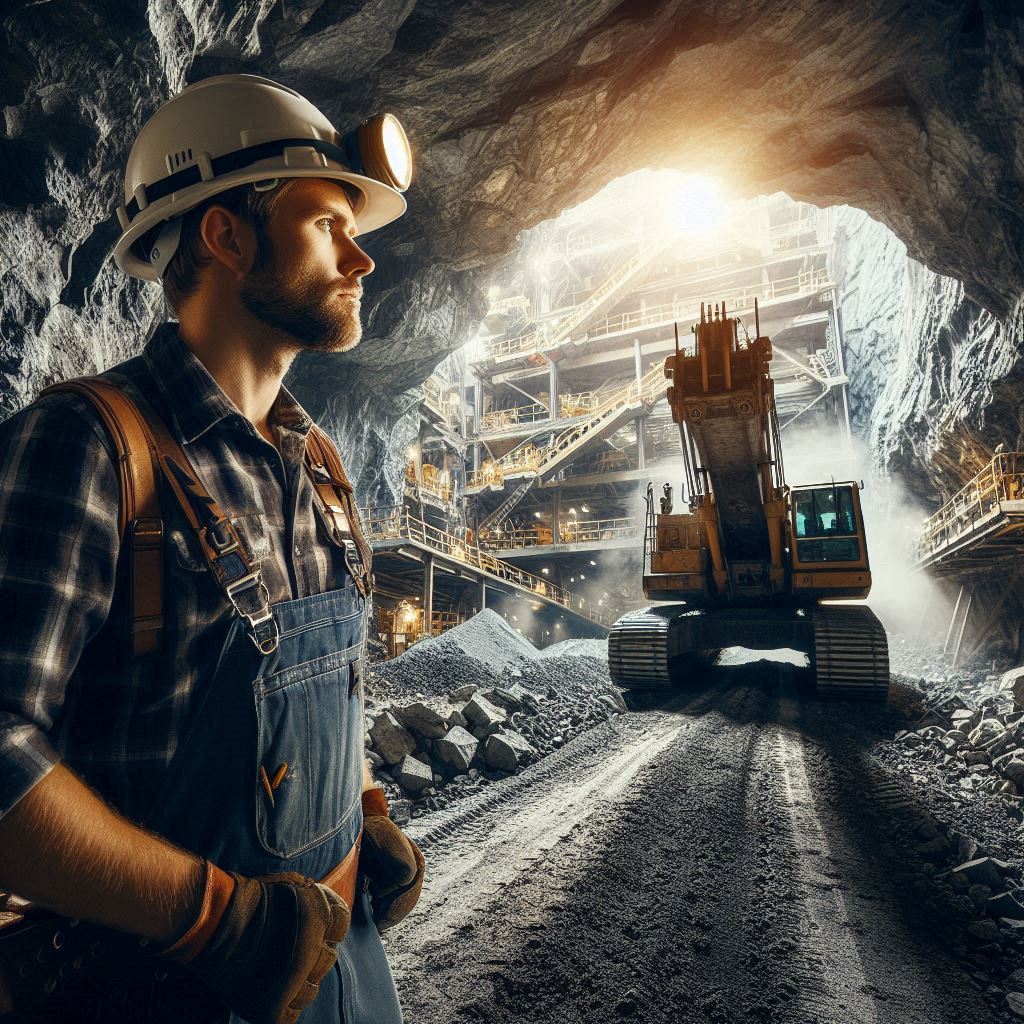Introduction
Environmental engineering is a dynamic field focused on solving environmental problems through technology and innovation.
Engineers in this field design systems to manage waste, control pollution, and improve sustainability.
Preparing for an interview in environmental engineering is crucial.
It helps candidates showcase their skills and knowledge effectively.
Brief Explanation of Environmental Engineering
Environmental engineering combines principles of engineering, biology, and chemistry.
The goal is to develop solutions to environmental challenges.
This field covers various areas, including water treatment, air quality management, and waste disposal.
Environmental engineers work on projects that promote public health and environmental protection.
They apply scientific knowledge to design and implement systems for managing natural resources.
Importance of Preparing for an Interview in This Field
Preparation for an environmental engineering interview is essential for several reasons.
First, it demonstrates your commitment and interest in the field.
Employers look for candidates who are passionate about environmental issues and can contribute positively.
Second, a well-prepared candidate can effectively communicate their technical skills and experiences.
This clarity helps interviewers assess your fit for the role.
Third, preparing for common interview questions helps you respond confidently.
Familiarity with typical questions and scenarios enables you to present your knowledge efficiently.
Fourth, understanding the company’s projects and goals allows you to tailor your answers.
It shows that you have done your homework and are eager to be part of their team.
Research the Company and Role
Understand the Company’s Values and Projects
Preparation is key to acing an environmental engineering interview.
Start by thoroughly researching the company.
Understanding the company‘s values and projects will give you a competitive edge.
Review the company’s website, recent news, and their social media presence.
Identify their core values and mission statements.
This knowledge helps align your responses with the company‘s goals.
Dive into the company‘s environmental initiatives.
Look for information about their sustainability practices, recent projects, and any innovations they are involved in.
Familiarizing yourself with these details demonstrates your genuine interest and enthusiasm for their work.
It also helps you tailor your answers to reflect how your skills and experiences match their needs.
Familiarize Yourself with the Job Description
Next, examine the job description carefully.
Highlight key responsibilities and required skills.
Understand the specific requirements for the role, such as technical skills or certifications.
This will help you prepare targeted examples of your experience.
Match your qualifications with the job‘s requirements, and be ready to discuss how your background fits.
Pay attention to any mentioned software or tools.
If the role requires proficiency in specific programs, make sure you‘re comfortable with them.
If you lack experience with certain tools, be honest and focus on your willingness to learn.
Discuss how you can quickly adapt to new technologies.
Review the required qualifications and preferred skills.
Prepare to showcase how your experience aligns with these criteria.
If the job emphasizes teamwork or leadership, be ready to share relevant examples from your past roles.
Highlight your ability to collaborate effectively and manage projects.
Understand the company‘s organizational structure and the team you‘ll be working with.
Knowing who you might report to and the team dynamics can be useful.
It allows you to discuss how you can fit into their existing setup and contribute to their objectives.
Researching the company‘s recent projects and achievements can also be beneficial.
Being able to discuss these projects shows that you have done your homework.
It allows you to ask informed questions during the interview, demonstrating your proactive approach and genuine interest.
Finally, prepare questions that reflect your research.
Ask about the company‘s future projects, challenges they face, or their approach to sustainability.
This not only shows that you are prepared but also helps you determine if the company is the right fit for you.
By thoroughly researching the company and role, you can confidently showcase your suitability for the position.
This preparation will help you stand out and increase your chances of success in the interview.
Read: The Journey: How to Become an Architect in the USA.
Review common environmental engineering interview questions
Preparing for an environmental engineering interview involves understanding both technical and behavioral aspects of the role.
Here‘s how to tackle it effectively:
Technical Questions Related to Environmental Regulations and Technology
Start by familiarizing yourself with common technical questions.
These often focus on environmental regulations and technology.
Expect questions about industry-specific regulations, such as the Clean Water Act or the Resource Conservation and Recovery Act.
You should know how these regulations influence engineering decisions and project designs.
Be prepared to discuss how various environmental technologies work.
You might be asked about waste treatment systems or air and water pollution control methods.
Brush up on current advancements in environmental monitoring tools and sustainable practices.
Show your knowledge of both traditional and innovative solutions.
Understanding the latest technologies in the field can set you apart from other candidates.
Answers for Behavioral Questions About Problem-Solving and Teamwork
Behavioral questions assess your problem-solving skills and teamwork abilities.
Reflect on past experiences where you tackled environmental challenges.
Prepare to explain how you identified problems, analyzed solutions, and implemented effective resolutions.
Focus on how you worked with others to achieve goals.
Think about specific examples where you demonstrated leadership or collaboration.
Describe situations where you resolved issues through teamwork and adaptability.
Employers want to see how you handle high-pressure scenarios and work in diverse teams.
Reviewing common interview questions can help you anticipate what might be asked.
Practice articulating your thoughts clearly, focusing on both technical and behavioral aspects.
Demonstrate your problem-solving skills and ability to work effectively with others.
In summary, to prepare effectively, review questions related to environmental regulations and technology.
Practice answers to both technical and behavioral questions.
Show your problem-solving capabilities and teamwork skills.
This preparation will help you enter your interview with confidence and a clear understanding of how to showcase your qualifications.
Read: The Role of NCARB in US Architecture Licensing.
Practice with mock interviews
Conduct Practice Interviews with Friends or Mentors
Preparing for an environmental engineering interview involves more than understanding the role and the company.
Conducting practice interviews with friends or mentors is crucial.
Choose individuals who are familiar with the field and can offer valuable insights.
These practice sessions should mimic the real interview experience as closely as possible.
When setting up these practice interviews, ensure that the questions are relevant to environmental engineering.
This helps you get accustomed to the types of questions you might encounter.
Practice answering these questions clearly and concisely.
Additionally, pay attention to your presentation, including your body language and tone of voice.
This holistic approach ensures you are well-prepared for both the content and delivery.
Receive Feedback on Your Answers and Presentation
After each mock interview, seek feedback on your performance.
Constructive criticism from friends or mentors is invaluable for improvement.
Ask them to provide specific feedback on various aspects of your interview, such as your answers, body language, and overall presentation.
Analyze the feedback carefully and identify areas for improvement.
If your feedback highlights issues with certain answers or aspects of your presentation, make the necessary adjustments.
Incorporate these suggestions into your subsequent practice sessions to enhance your performance.
Effective feedback can help you refine your answers and presentation style.
Practice until you are confident in delivering clear, concise, and well-structured responses.
Regularly revisiting and improving based on feedback will significantly boost your readiness for the actual interview.
Incorporating mock interviews and feedback into your preparation strategy is essential.
These practices help you build confidence, manage interview anxiety, and refine your overall interview skills.
By focusing on both your answers and presentation, you will be well-prepared to impress your interviewers and secure the environmental engineering position you desire.
Read: Exploring Architect Salary Trends: USA Analysis.
Prepare to Showcase Relevant Experience
When preparing for an environmental engineering interview, showcasing your relevant experience is crucial.
Start by reviewing your resume and identifying key projects and internships.
Highlight experiences that directly relate to environmental engineering.
For each project, prepare a brief summary of your role, the challenges you faced, and the outcomes.
Emphasize your hands-on involvement in solving environmental problems.
Consider discussing specific projects where you applied engineering principles to address sustainability issues.
For instance, mention any work involving waste management, water treatment, or pollution control.
If you participated in any research, detail the objectives, methods, and results.
This helps interviewers see your practical knowledge and problem-solving skills.
If you have relevant internships, explain how they prepared you for the role you are applying for.
Describe the skills you acquired and how you applied them.
Mention any collaboration with professionals in the field and how this experience enhanced your understanding of environmental engineering.
Projects or Internships Related to Environmental Engineering
During the interview, focus on projects or internships that align with the job role.
Clearly articulate how these experiences make you a strong candidate.
Provide details about your responsibilities and how you contributed to the success of the project.
Use specific examples to illustrate your technical skills and problem-solving abilities.
Discuss any innovative approaches or solutions you implemented in your projects.
This could include new methods for improving environmental processes or effective strategies for resource management.
Demonstrating your ability to think creatively and adapt to challenges will make a strong impression.
If you have experience with any cutting-edge technologies or tools used in environmental engineering, mention these as well.
Explain how you utilized these tools to achieve project goals.
Highlight any achievements or recognitions received for your work in these projects.
Your Passion for Sustainability and Environmental Protection
Convey your genuine passion for sustainability and environmental protection.
Share personal experiences or motivations that drive your commitment to these issues.
Explain why environmental engineering is important to you and how it aligns with your career goals.
Discuss any volunteer work or extracurricular activities related to environmental conservation.
This demonstrates your dedication beyond formal education and work experience.
Mention any involvement in community initiatives or advocacy for environmental issues.
Express your enthusiasm for contributing to solutions that address environmental challenges.
Show how your values align with the company’s mission and values.
This helps interviewers see you as a passionate and motivated candidate who is committed to making a positive impact in the field of environmental engineering.
Read: Comparison: Architecture Styles across American Regions.

Dress Professionally and Arrive Early
Choose Appropriate Attire for the Interview
First impressions are crucial in an environmental engineering interview.
Dressing professionally and appropriately can significantly impact your interview’s outcome.
Aim for business formal attire to project a polished and serious image.
For men, a classic suit or a dress shirt paired with well-fitted slacks is ideal.
Opt for a blazer or jacket to complete the look.
Women can choose a tailored suit, a professional dress, or a blouse with slacks or a skirt.
Ensure that your clothes are clean, well-pressed, and properly fitted.
Select conservative and neutral colors such as navy, gray, or black.
These colors are typically seen as professional and less distracting.
Avoid bright or bold patterns that could divert attention away from your qualifications.
Your shoes should also reflect a professional standard‘make sure they are clean and polished.
Attention to personal grooming is essential.
Maintain neat hair, and if you choose to wear makeup, keep it minimal and subtle to enhance your overall appearance.
By dressing appropriately, you signal that you respect the interview process and are serious about the role.
A well-chosen outfit can boost your confidence and make a strong impression on the interviewer.
Remember that professionalism in your appearance can complement your qualifications and skills.
Plan Your Route and Aim to Arrive at Least 15 Minutes Early
Planning your route is another key component of a successful interview preparation.
Start by familiarizing yourself with the interview location well in advance.
Use mapping services or GPS to find the best route to the venue.
Consider factors like traffic patterns, construction, or road closures that could affect your travel time.
Preparing for these potential issues can help you avoid delays.
Aim to arrive at least 15 minutes before the scheduled interview time.
Arriving early provides several advantages.
It allows you to check in calmly and handle any administrative tasks without feeling rushed.
Additionally, being early gives you a few moments to relax, review your notes, and mentally prepare for the interview.
Arriving early also demonstrates punctuality and respect for the interviewer‘s time.
It shows that you are organized and considerate, traits that are valued in any professional setting.
Use the extra time to gather your thoughts and ensure you are ready for the conversation.
In summary, dressing professionally and planning your route are critical steps in interview preparation.
By focusing on these aspects, you not only present yourself in the best light but also enhance your overall confidence and readiness.
Your attention to detail in these areas will help you stand out and leave a positive impression on your potential employer.
Bring Necessary Documents and Materials
Preparing for an environmental engineering interview requires careful organization.
Bringing the right documents and materials can significantly impact your performance.
Transform Your Career Today
Unlock a personalized career strategy that drives real results. Get tailored advice and a roadmap designed just for you.
Start NowPrepare Copies of Your Resume and Portfolio
Start by preparing multiple copies of your resume.
Ensure each copy is up-to-date and error-free.
A well-crafted resume highlights your qualifications and experience.
Next, assemble a professional portfolio.
Include examples of your past projects and achievements.
This portfolio should showcase your skills and contributions to previous roles.
A well-organized portfolio can set you apart from other candidates.
It provides tangible evidence of your capabilities.
Have a List of References and Any Certifications Handy
Additionally, prepare a list of references.
Choose individuals who can speak positively about your skills and work ethic.
Contact these references ahead of time to confirm their willingness.
Having their contact information readily available shows professionalism and preparedness.
Don‘t forget to bring any relevant certifications.
These documents validate your qualifications and expertise in environmental engineering.
Certifications can be a significant asset, especially if they are industry-recognized.
Ensure these documents are organized and easily accessible.
Organize all documents in a professional folder or binder.
This method keeps everything neat and easily accessible during the interview.
Avoid fumbling through loose papers, as it can appear unprepared.
Review each document before the interview.
Double-check for accuracy and completeness.
Ensure that your resume, portfolio, references, and certifications are aligned with the job requirements.
This preparation demonstrates attention to detail and readiness for the role.
During the interview, offer these documents when requested.
Present them confidently, and be ready to discuss each one.
Your ability to provide well-organized and relevant documents can enhance your credibility.
Finally, anticipate questions related to your documents.
Be prepared to discuss your projects in detail or explain your certifications.
This readiness shows that you are not only organized but also knowledgeable about your achievements and qualifications.
Properly preparing your documents and materials is a crucial step in interview preparation.
It ensures that you present yourself as a competent and organized candidate.
This preparation can significantly improve your chances of making a positive impression and securing the position.
thoroughly for your environmental engineering interview, you can increase your chances of success and stand out as a strong candidate for the position.
Delve into the Subject: Essential Tools for Engineering Technicians
Delve into the Subject: Agricultural Engineering: Industry Insights and Trends
Conclusion
Preparing for an environmental engineering interview requires focused effort and strategic planning.
Start by reviewing common interview questions related to environmental engineering.
Understand the core principles and recent advancements in the field.
Familiarize yourself with key regulations, technologies, and sustainability practices.
Practice articulating your experience with real-world projects.
Highlight specific examples where you addressed environmental challenges or contributed to sustainable solutions.
This demonstrates both your technical skills and problem-solving abilities.
Be ready to discuss your role in these projects and the outcomes achieved.
Research the company and its environmental initiatives.
Tailor your responses to show how your skills align with their goals and values.
This preparation shows your genuine interest and helps you stand out as a well-informed candidate.
Work on your communication skills.
Clear and concise explanations of complex topics can make a strong impression.
Practice your responses with a mentor or through mock interviews.
This will help you become more comfortable and articulate during the actual interview.
Prepare questions to ask the interviewer.
Inquire about the company‘s environmental projects, team structure, and growth opportunities.
This shows your interest and helps you assess if the company is a good fit for you.
[E-Books for Sale]
The Big Book of 500 High-Paying Jobs in America: Unlock Your Earning Potential
$19.99 • 500 High-Paying Jobs • 330 pages
Explore 500 high-paying jobs in America and learn how to boost your career, earn more, and achieve success!
See All 500 High-Paying Jobs of this E-Book
1001 Professions Without a Degree: High-Paying American Jobs You Can Start Now
$19.99 • 1001 Professions Without a Degree • 174 pages
Discover 1001 high-paying jobs without a degree! Unlock career tips, skills, and success strategies for just $19.99!




